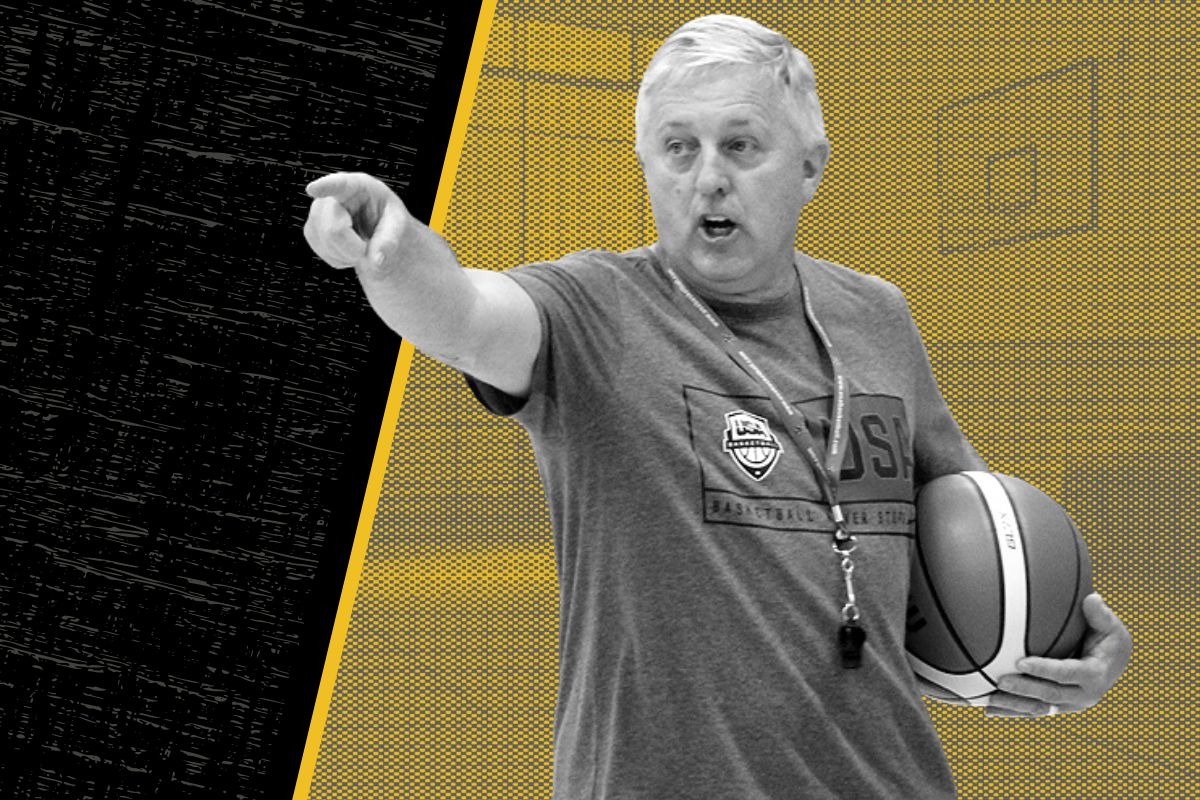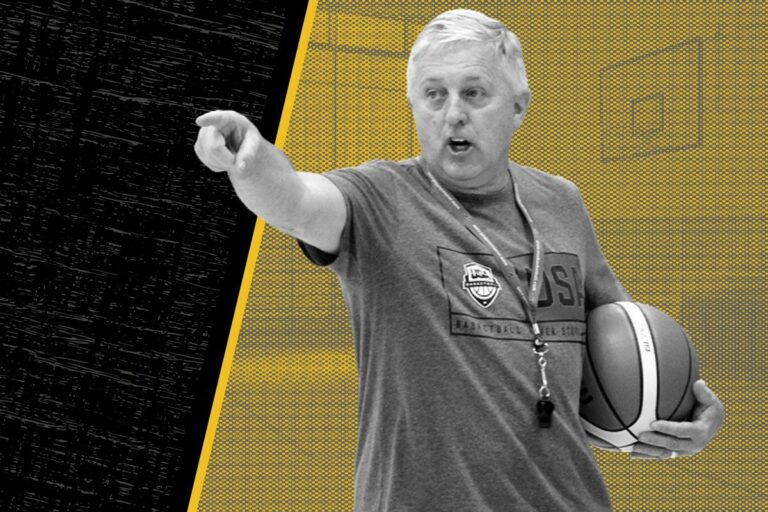USA Basketball’s Don Showalter’s 3 Program Building Tips
- Enthusiasm and passion are important to success, and it’s the leader's job to build that culture.
- Do whatever you can to bridge the gap between your team and your students’ parents, and get to really get to know them.
- Encourage and promote student leadership. This helps everyone in the program build trust and grow together.
Don Showalter is no stranger to success. He was the USA Basketball Developmental Coach of the Year for eight consecutive years between 2009-16, and won gold at both the FIBA Under-17 Basketball World Cup and the FIBA Under-16 Americas Championship four times, each. And that’s not to mention his nine Coach of the Year awards from the Iowa Basketball Coaches Association.
Clearly, coach Showalter knows what it takes to build a winning program; what to look for, what to avoid, how to navigate potentially tricky situations, etc. He is a walking treasure trove of leadership advice, and we were fortunate enough to talk with him and learn three program building tips that have helped him find success time and time again.
LISTEN to coach Don Showalter on The Leading Edge Podcast. (Player below)
1: Inspire peer-to-peer leadership among students
Coach Showalter always invites his players to speak their minds and take on a leadership role. The way he sees it, it’s their team.
“How do you want your team to be perceived? We’ll talk about that. ‘This is really your team, so what are you gonna do if one of your teammates doesn’t buy into what we’re doing?’ And so we’ll have a lot of discussion in a team setting like that.”
Showalter says it helps build communication and encourages development, as seen in one instance with three now-NBA players.
“During one of our games, Scotty Barnes got the rebound, and he was pushing it down the court. Jalen Suggs did a great job of running the corner, where he was supposed to – Jalen Green, to the other corner, where he was supposed to.
And they didn’t get the ball. Neither one of them got the ball — not that it was a bad decision. So Jaylen Suggs comes over to me and says, ‘Hey, Scotty, didn’t give me the ball when he was supposed to.’ I go, ‘you know what, don’t tell me, you tell Scotty.’”
At the end of the day, the players are the ones out there playing the game. There will be times where they will have to navigate tight moments among themselves, using their own judgment. When that time comes, Showalter’s players will already have experience that others may not.
2: Set the tone and guide the culture
Another tip that sets Showalter’s teams apart is the genuine care the players and the staff have for each other.
“I think the word care has a lot to do with being a program builder. Do you really care about the players? If you care about them, they’re gonna sense that,” coach Showalter says.
“There’s two things that coaches have to come with every day. You better come with some enthusiasm, and some passion. If you have enthusiasm and passion, your practices will be off the charts, I would say, about every day. Sometimes you think, ‘oh no, my players gotta bring that.’ No, you have to start it. That’s up to you as a coach to start it.”
Showalter lists coaches Jay Wright, Tom Izzo, and Coach K as greats who bring enthusiasm and passion to the game. “Their players just feed off that, you can just tell the atmosphere is off the charts. That’s a program builder because every day they’re getting better because of your enthusiasm, your passion. And the players see that.”
In Showalter’s gyms, coaches watching a drill from the sidelines with your arms crossed is off-limits.
“You’re fired. You can’t do that. You gotta get in there, and you gotta sweat with them. Players love coaches who sweat with them. And I think that’s really a program builder.”
Coach Showalter’s passion is a common thread between successful leaders here on Leading Edge. If you want to get more first-hand stories and tips from expert leaders like this, delivered straight to your inbox every month, subscribe to our newsletter: The Edge.
3: Visit your students and get to know the parents
In modern times, parents are more engaged in their child’s teams and clubs. As a result, it’s important to have a warm and open dialogue with them.
“I tell coaches, understand that when you talk to a parent, you’re not talking about the same person. As a coach, I’m talking to them about a player on my team that’s playing with 15 other guys. As a parent, I’m talking to you about my son or daughter and that’s it.”
Coaches need to remember that their players are complex individuals and try to understand them as people. Coach Showalter does this by individually visiting each player’s family in their own home.
“I felt it [was] really important. I had to make a house visit and explain our program, where I was coming from. And that probably did more good than anything I could have ever done to help me bridge the gap between parents,” says coach Showalter.
“That allowed them to know me. So I think coaches, when you don’t allow parents to get to know you, I think you’re only setting the bar [to] where the parent can get out of control, because they don’t know you.”
It may be a laborious task, but coach Showalter means it when he says this is his true key to program building success. However you decide to do it, find a way to build a healthy relationship with your students’ parents.











